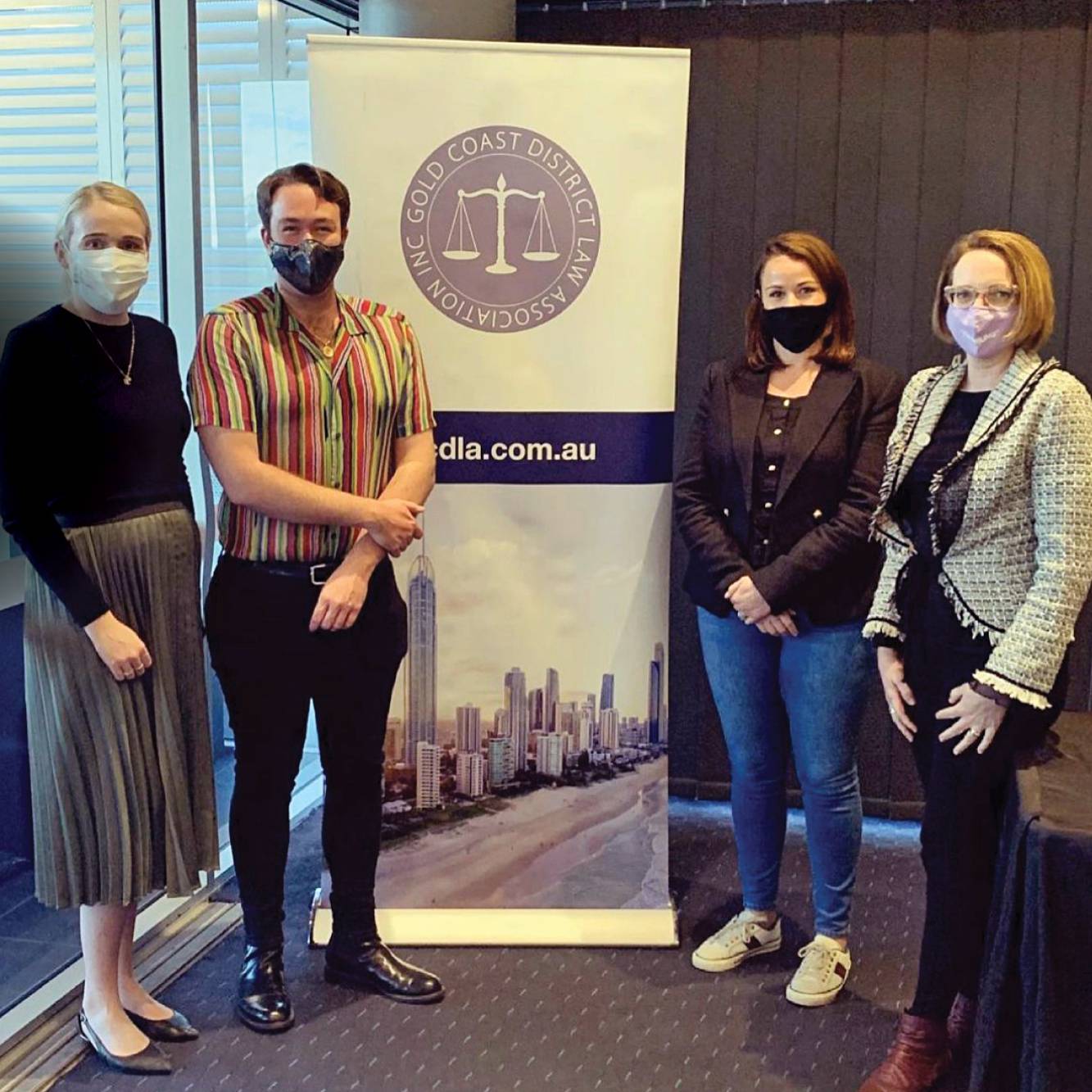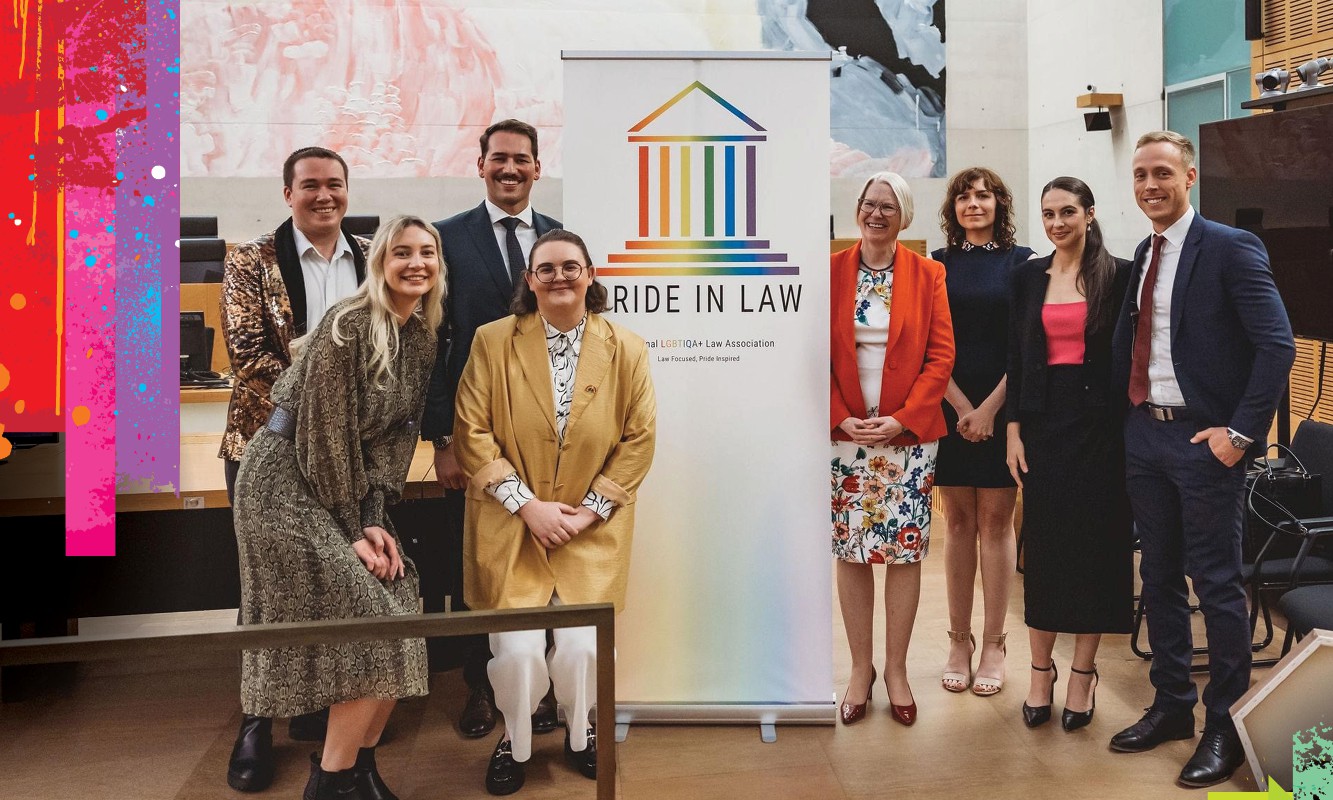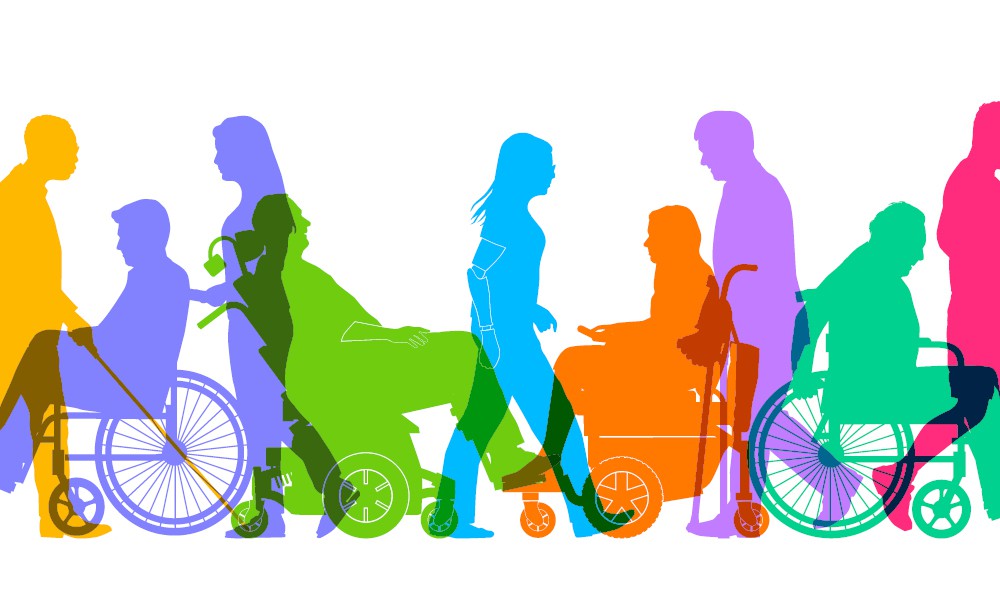This month, the Queensland Law Society is celebrating Pride and raising the visibility of the LGBTQIA+ community in the workplace.
LGBTQIA+ Pride Month, held annually in June, marks the anniversary of the 1969 Stonewall Uprising in Manhattan, a pivotal event in the fight for LGBTQIA+ rights. At QLS, the Pride Committee has been working diligently to create a more inclusive workplace and foster a culture of acceptance and support.
The QLS Pride Committee at IDAHOBIT event.
Last month, the Pride Committee acknowledged the International Day Against Homophobia, Biphobia and Transphobia (IDAHOBIT) day with a morning tea which was followed by an address by QLS Councillor Sheetal Deo.
Sheetal, who was a QLS employee before joining the Council, spoke of her experience as a founding member of the QLS Staff Pride network, the Society’s first march at Brisbane Pride and the importance of visibility of the LGBTQIA+ community in the workplace.
To celebrate Pride month, the QLS Pride Committee is creating conversations about the meaning of Pride, by displaying the “Intersex Inclusive Progress Pride Flag” as a symbol of inclusivity and wholeheartedness in the workplace.
The importance of gay rights in Queensland
In Queensland, significant strides have been made in advancing gay rights, but challenges remain. Legal recognition of same-sex relationships, anti-discrimination protections, and support for LGBTQIA+ mental health are critical issues. For instance, the Queensland Human Rights Commission enforces laws against discrimination based on sexual orientation, gender identity, and intersex status. However, advocacy is still needed to address ongoing inequalities and ensure comprehensive protection and support for the LGBTQIA+ community.
Why should legal professionals get involved in Pride Month?
Participation in Pride Month is essential for legal professionals for several reasons:
1. Advocacy and justice: Legal professionals play a crucial role in challenging discriminatory practices and supporting LGBTQIA+ clients through legal representation and advocacy. By actively participating in Pride Month, they can help raise awareness of LGBTQIA+ issues and contribute to the fight for equality and justice.
2. Fostering inclusivity: Involvement in Pride initiatives promotes a more inclusive work environment. This not only benefits LGBTQIA+ employees but also enhances the overall workplace culture, making it more welcoming and supportive for everyone. The Pride Committee actively holds internal events to promote such inclusivity.
3. Building trust: Trust is essential for effective legal advocacy and client relationships, and showing solidarity during Pride Month reinforces this trust. Active participation in Pride Month helps build trust between the legal profession and the LGBTQIA+ community. It demonstrates a commitment to supporting and standing with the community, fostering stronger relationships.
4. Professional responsibility: Lawyers have an ethical obligation to uphold justice and equality. Participating in Pride Month is a reflection of this commitment and an opportunity to reaffirm these values.
Steps for better inclusivity for LGBTQIA+ Solicitors
To create a more inclusive environment for LGBTQIA+ solicitors, the legal profession should take the following steps:
1. Implement inclusive policies: Law firms and legal organizations should adopt and enforce policies that protect LGBTQIA+ employees from discrimination and harassment. This includes comprehensive non-discrimination policies, benefits for same-sex partners, and support for transitioning employees.
2. Provide training and education: Regular training on LGBTQIA+ issues help create a more understanding and supportive workplace. Training should cover topics such as unconscious bias, respectful communication, and the specific challenges faced by LGBTQIA+ individuals.
3. Establish mentorship programs: Mentorship programs for LGBTQIA+ solicitors can provide valuable support and guidance. These programs can help individuals navigate their careers, build networks, and find role models within the profession.
4. Form diversity and inclusion committees: Law firms should have dedicated committees to address LGBTQIA+ issues. These committees can develop and implement strategies to promote inclusivity, organize events, and ensure that LGBTQIA+ voices are heard.
5. Engage in public advocacy: Legal professionals should engage in public advocacy for LGBTQIA+ rights. This includes supporting LGBTQIA+ legal initiatives, participating in pro bono work for LGBTQIA+ clients, and speaking out against discriminatory laws and practices.
6. Create support networks: Establishing and supporting LGBTQIA+ networks within the legal profession can provide a sense of community and belonging. These networks can offer resources, organize events, and advocate for the needs of LGBTQIA+ solicitors.
Conclusion
Visibility is important as what we see directly influences how we treat each other and it helps form the decisions we make at work, at home and in the community. Pride Month is a powerful reminder of the importance of inclusivity, diversity, and equality.
For the legal profession, it is an opportunity to reaffirm its commitment to these values and to take concrete steps towards fostering a more inclusive environment for LGBTQIA+ solicitors. By participating in Pride Month and implementing inclusive practices, legal professionals can play a crucial role in advancing LGBTQIA+ rights and creating a more just and equitable society.
This article was written by Myles Waugh, a member of QLS Pride and the Diversity and Inclusion Committee, and QLS administration assistant Evren Kurt with the assistance of QLS Councillor Sheetal Deo.
Footnotes
1 Law Society. (2021). Celebrating Pride in the Legal Profession. Retrieved from https://www.lawsociety.org.uk/topics/lgbt-lawyers/celebrating-pride-in-the-legal-profession
2 The Guardian. (2013). Discrimination Against LGBT+ Still Rife Despite Gay Marriage. Retrieved from https://www.theguardian.com/world/2013/jun/28/discrimination-lgbt-rife-gay-marriage-pride-parade
3 Law Gazette. (2021). Pride in the Law. Retrieved from https://www.lawgazette.co.uk/commentary-and-opinion/pride-in-the-law/5109802.article
4 Queensland Human Rights Commission. (2020). LGBTQIA+ Rights in Queensland. Retrieved from https://www.qhrc.qld.gov.au/your-rights/lgbtiq
5 Australian Human Rights Commission. (2020). LGBTQIA+ Rights. Retrieved from https://www.humanrights.gov.au/our-work/lgbti
6 Diversity Council Australia. (2018). Inclusion@Work Index 2018. Retrieved from https://www.dca.org.au/research/project/inclusion-index
7 Law Council of Australia. (2016). Diversity and Equality Charter. Retrieved from https://www.lawcouncil.asn.au/policy-agenda/advancing-the-profession/diversity-and-equality













Share this article